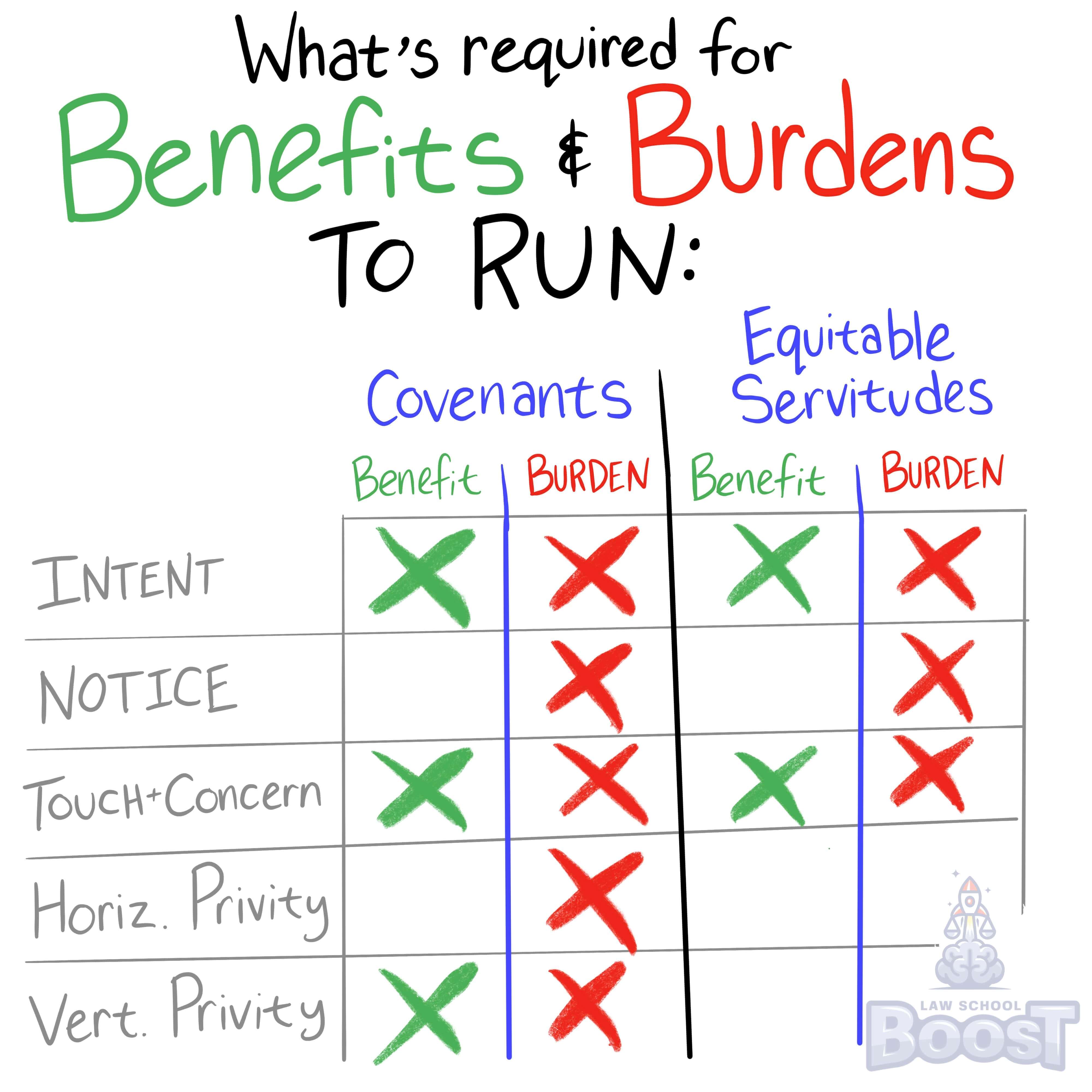😀
Real Property • Real Covenants
PROP#129
Legal Definition
Intent may be inferred from the circumstances or in the language in the conveyance (e.g., "heirs and assigns").
Plain English Explanation
For a real covenant to run with the land and force future owners and possessors to obey, there must be intent for it to do so. Sometimes this intent is as obvious as language like "this covenant runs with the land," and sometimes it is more formal, like "the recipient covenants for himself, his heirs, successors, and assigns." Moreover, a covenant can run with the land if you can infer from the circumstances surrounding its creation that such intent was present.
Visual Aids

Related Concepts
How is an equitable servitude created?
How is an equitable servitude terminated?
How may a covenant be terminated?
In assessing an equitable servitude, when will a benefit run with the land?
In assessing an equitable servitude, when will a burden run with the land?
In assessing real covenants, how will courts treat racially restrictive covenants?
In assessing whether a real covenant will run with the land, what constitutes notice?
In assessing whether a real covenant will run with the land, what is horizontal privity?
In assessing whether a real covenant will run with the land, what is touch and concern?
In assessing whether a real covenant will run with the land, what is vertical privity?
What are the 5 equitable defenses against enforcement of an equitable servitude?
What is an equitable servitude?
What is a real covenant?
What is required for a benefit to run with the land?
What is required for a burden to run with the land?
What is the remedy for breach of an equitable servitude?
When may an equitable servitude be implied?
Which covenants always run with the land?


